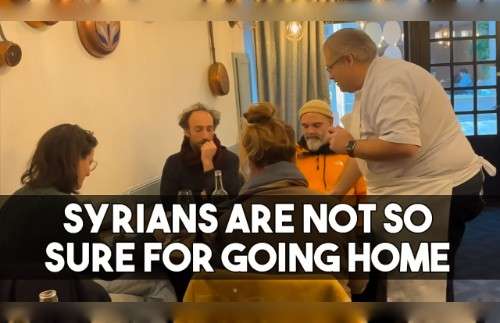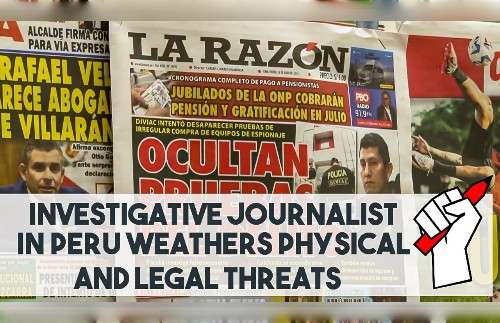
Despite assurances from the Taliban that press freedom would be respected and that Afghan women journalists could work, a new media landscape began to emerge without them. RSF calls on the Taliban to provide immediate guarantees for their freedom and security.
Between the incidents involving Afghan journalists since the Taliban came to power, and the injunctions to respect Islamic laws, there are today less than a hundred still officially working in the media in the capital, according to an investigation by Reporters Without Borders (RSF). By 2020, in partnership with its partner organization, the Center for Afghan Women Journalists (CPAWJ), the organization had established the existence in Kabul of 108 media outlets, employing 4,940 people, including 1,080 women, and among them 700 journalists. Of the 510 women who worked in 8 of the largest media and press groups, only 76 (including 39 journalists) still hold office to this day. Suffice to say that it is a virtual disappearance of women journalists in the capital.
The Taliban’s respect for the fundamental right of women, and in particular of women journalists to exercise their profession, is a fundamental issue,” said RSF secretary general Christophe Deloire. It is essential that women journalists can resume their work as quickly as possible without being worried, because it is their strictest right, because it is essential for their subsistence, but also because their absence in the Afghan media landscape would mean silencing all other Afghan women. We call on the Taliban leadership to immediately provide guarantees for the freedom and safety of Afghan women journalists ”
In provinces where almost all the private media ceased their activities as the Taliban troops advanced, most female journalists were forced to cease their professional activity. Admittedly, a handful of them continue, as best they can, to do their job from their home, but we are far from the figures for 2020, when the statistical survey conducted by RSF and the CPAWJ had established that more than 1,700 women were working. in the media of three provinces of the country (in Kabul, Herat and Balkh – in the east, west and north of the country).
The illusion of normality therefore only lasted a few days. Forty-eight hours after the takeover of the capital by the Taliban, women reporters from private channels such as Tolonews, Ariana News, Kabul News, Shamshad TV and Khurshid TV had dared to take over the air and go out into the streets to cover the news. events. In Kabul, however, private media officials quickly observed that female reporters were being harassed. One of them, Nahid Bashardost who works at the independent news agency Pajhwokwas beaten by the Taliban while reporting near Kabul airport on August 25. Other journalists explained, in tears, how they had been prevented by the Taliban guards stationed in front of the offices of their editorial staff, from going on report.
If the field is no longer authorized, appearing on the air is hardly more so for women journalists. A journalist working for a radio station in Ghazni province, in south-eastern Afghanistan, explains that two days after the Taliban took control of her province, her media received a visit from the latter who threatened: “You are a private radio station, you can continue, but without a woman’s voice and without music”. The scenario repeated itself in Kabul. A Taliban took the place of a presenter of Radio Television Afghanistan ( RTA ) who was ordered to “stay at home for a few days”.One of her colleagues, presenter, was also refused entry to the premises of her editorial staff. RTA employed 140 female journalists until mid-August. Today, none of them dare to resume their work in government channels that have come under Taliban control.
Private media managers, under pressure, confirm that they have advised their sisters to stay at home, when they do not simply choose to go out of business. The private television channels Zan TV and Bano (editor’s note: respectively ‘Woman’ and ‘Madame’ in the Dari language) which employed 35 and 47 women journalists respectively, ceased all activity on August 15. “It was a perfect job for me, I wanted to help women, but I don’t know if I will be able to work again one day”, testifies with anguish one of their journalists, now deprived of work, of resources and who risks, like many of his sisters, to fall into the greatest precariousness.
Despite the pledges of Taliban spokesman Zabihullah Mujahid that women could “ return to their jobs in a few days”, no such measure has yet been announced, thus forcing several hundred women journalists to stay. at home, plunged into fear and uncertainty.
On August 24, the United Nations (UN) High Commissioner for Human Rights, Michelle Bachelet, declared that: “A fundamental red line will be the way the Taliban treat women and girls and respect their rights to liberty, freedom of movement, education, personal expression and employment, in accordance with international human rights standards. ”
When the 2021 edition of the World Press Freedom Index was published last April, Afghanistan was ranked 122nd out of 180 countries.
Copyright © 1998-2016, RFA. Used with the permission of Radio Free Asia, 2025 M St. NW, Suite 300, Washington DC 20036. https://www.rfa.org


















